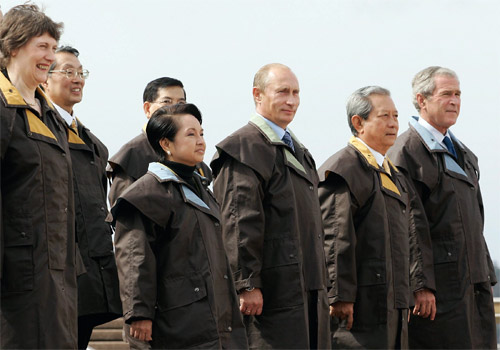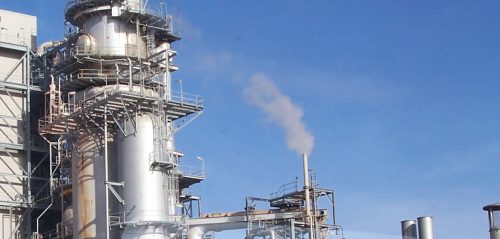Tuesday 12 May 2009 at 4:29 pm
Hourann’s Federal Budget verdict: not perfect, but decent, and surprisingly well balanced.
Most of the criticism I’ve read is rubbish — what’s up with Joe Hockey and this “lost control” nonsense, or his constant dummy-spit about taking on some debt? There is a pretty strong global consensus that cutting spending is unwise (witness California, or indeed any American state), and while it’d be lovely and morally pure to remain debt-free, that’s nigh impossible in the current climate. We will at least still be one of the least-indebted OECD members, and unless the recession becomes long-lived and revenues drop sharply again, the proposed debt is quite manageable.
Rather than arguing about how much is spent, though, I think it’s quite fair to entertain criticism on where it’s spent. There is room for decent arguments that this budget does scant little for the environment, that the spending on education is good but not targeted correctly, or that the proposed infrastructure spending is neither big enough nor bold enough. But then again, see above; not going too far into deficit is a pretty important consideration, and on that front I think the general balance looks about right. (Imagine if the spending levels had been Keating-esque!)
Oh, and the budget includes $236 million for the Northbridge Link rail project in Perth (leaving the Sydney Morning Herald to whine on the front page). Again not perfect (it’s not enough to go past Lake Street!), but still, who says the Commonwealth never did anything for WA? 
Wednesday 17 October 2007 at 11:17 pm
Back around the last election, I recall hearing lots of shock and disbelief at the single-seat Senate majority the Liberal Party won courtesy of Mark Latham’s campaign implosion. This was echoed in 2005 when the Senate election took effect, with everyone left-of-centre seeming to be worried about the future.
And indeed, later that year the majority was used to rush through WorkChoices and a couple of other changes (like voluntary student unionism). But since then, there have been remarkably few big-ticket laws, and certainly nothing that took advantage of the opportunity for serious reform in contentious areas like tax (and I don’t mean this frittering with thresholds nonsense).
So there is some truth (and, of course, some falsity) in Team Howard’s claim to have stuck to their promise of using the majority ‘responsibly’, by which they mean in a boring and conservative manner. It’s like they’ve run out of ideas for major change despite having a silver-platter opportunity.
There have been not-well-heard voices pointing to the Government fiddling with procedural matters, like scrapping committees and ignoring amendments. Maybe these will cause the Senate’s role to change, like how it stopped caring about the complaints of State politicians (and even local candidates) in saying “waaaaah Canberra isn’t giving us enough money”.
Or maybe Labor will win the lower house, while the Liberals hold on to their majority, and things will drift back to the way they were.
Monday 10 September 2007 at 11:42 pm

This year’s APEC has brought news of so many deals, you could be forgiven for thinking the delegates tackled every big international issue under the sun … but of course, being jack of all trades usually means being master of none. And so it is that despite the rhetoric, the big-ticket announcement of the Sydney Declaration delivers no more than a bunch of hand-waving statements that are barely worth anything in seriously combating climate change.
The thing is, the Sydney Declaration actually is a decent achievement by APEC standards, which is why it overshadowed much more productive news like the deal between Australia and Indonesia to reduce wasteful burning of peat in Borneo.
The issue on which I was expecting to hear some argument was whether APEC should admit more countries, with the moratorium on new members expiring this year. Alternatively, this year would have been a great opportunity to focus APEC a bit by restricting membership with a strict definition like “must have a Pacific coastline”. Instead, the matter seems to have been swept under the carpet, with the only word in the Leaders’ Statement being a new moratorium that’ll run to 2010.
Meanwhile, the first of the long-touted trilateral dialogues between Australia, Japan, and the US was reportedly dominated by discussion of India, Michelle Bachelet of Chile gave an interesting speech, George Bush took a tiny positive step in handling North Korea, business groups adopted an anti-corruption pledge, and more good work was done in tackling the red tape that can stifle international trade.
But there’s been little motion on the bigger and more important question: how will APEC evolve in future? The hope from the early 90s of an enormous free-trade area seems moribund now, and if it is instead to continue the (probably more important) work of lessening regulatory barriers, why are delegates being distracted with things like weak climate change proclamations?
Tuesday 7 August 2007 at 11:05 pm
Last week’s series of ASEAN meetings, including the ASEAN Regional Forum (at which North Korean nuclear weapons were the hot topic, though the Western media hardly noticed), were a continuation of the process started some years ago of taking definite-but-not-hasty steps towards further integration and formalisation in the region, this being typical ASEAN style. As examples, the meetings produced a tentative human rights agreement and a new ARF adjunct group.
But most interesting has been that one of the key topics for discussion (on the sidelines of the meetings, at least) was Security Council resolution 1769, which authorises a peacekeeping force in Darfur. It seems that a few participants — particularly John Negroponte, who attended for the US in Condi Rice’s absence — were asking around to see who’d be willing to send some troops. So this year is notable as an occasion where ASEAN meetings have had an impact beyond the immediate region.
On our behalf, Alexander Downer announced that the Australian military is too busy to pitch in for Darfur (and although he was criticised, if you believe that we absolutely need to be in Iraq, I suppose that’s kinda reasonable). He also signed a new partnership agreement that will hopefully strengthen Southeast Asian ties, in a gradual and very ASEAN kind of way.
Wednesday 6 June 2007 at 11:48 am

There’s been quite the flurry of stories about global warming in the news of late.
It reached a peak with last week’s report from the PM’s emissions trading task force, a document that doesn’t embrace science so much as hold it at bay except when absolutely needed. The report does at least acknowledge that the uncertainty of not planning for global warming delays investment in some areas, and therefore argues that Australia shouldn’t wait for a global system to be decided. But while it suggests committing immediately to an emissions cap, it doesn’t say what that should be, and Howard’s not made any suggestions (though he is already misquoting it).
Aside from the fact that the proposed cap-and-trade model starts very slowly (with free licences to pollute for “existing businesses identified as likely to suffer a disproportionate loss”), the report also suggests it should be one policy to rule them all — that “less efficient government policies need to be phased out”.
In this light, consider two State policies announced on Sunday against the climate change tokenism of the WA government: NSW shall be buying clean-fuel buses (done here years ago), while Queensland will spend $300 million on research and set a measly 10% target for renewable energy (although they will commit to cleaning up government buildings). Neither is all that great, but they don’t deserve to be sacrificed; Queensland’s policy at least puts some effort into much-needed research.
And at least it’s better than the Chinese government’s plan for climate change, an English version of which is here (hat-tip to David Reevely, who has an excellent overview). It basically repeats the subtext that can be seen in the Australian report (“waaah! it’ll hurt the economy!”) and focusses on things like improving efficiency and imposing regulations on manufacturers (not that I believe them; consider how easy it is to get local officials to look away). But of course, these are all things that need to be done anyway.
Australia hasn’t ratified Kyoto but has kept to target of 108% of 1990 emissions, while the Chinese failed on the self-imposed goal of 4% reduction in energy use divided by GDP (though that has decreased in the longer term). But even if they get to Western levels of efficiency, they’ll still be ramping up the number of polluting industrial facilities, which is why they should be embracing low-emissions technology now in areas like steelmaking and electricity generation. Indeed, theirs is a situation where nuclear power seems a decent solution: they need lots of energy, and can’t wait for solar panels to become cheap, but nobody wants them building hundreds more coal-fired generators that’ll pollute for decades.
And as an aside, given the concern in some quarters about WA’s boom coming to an end: I do believe that if the State government were to lift its silly ban, selling uranium to China would keep us prosperous for quite some time …
Tuesday 8 May 2007 at 7:05 pm
So the 2007 episode of The Peter Costello Budget Show has aired, and my first impression is “wow! the spending’s not as irresponsible as I’d expected!”
Not to say that it is responsible, but I can at least detect miniscule grains of sense in pretty much everything that’s been put forward.
Perhaps because of this, Treasurer-man was at pains to tell journalists that he’s delivering “major reforms” — which is of course nonsense. For instance, rather than tax simplification, there’s a $30 billion tax cut aimed squarely at the voters who haven’t been all that well looked-after by Pete and Johnny thus far. Indeed, that’s the theme of this Budget: try to buy out voters who may be swaying from the Howard school of “keep interest rates low” due to traditional Labor concerns like the environment or education.
Universities get a reasonable boost in the form of a “Higher Education Endowment Fund” equating to about $100 million per campus (UWA’s existing endowment is $450ish million), along with promises of new management policies and more funding for Commonwealth scholarships, but this is relatively small change on the back of long-term declines. The story is likewise for vocational training: any extra funding is great, and this Budget delivers, but it falls far short of what is really needed.
There are a bunch of one-off bribes carefully structured so they’ll arrive right before the election, one of which is a doubling of the superannuation co-contribution for payments made last financial year. It must be said that this policy is a mostly good thing and thus worthy of funding, but a one-off top-up? in an election year? could it be any more blatant?!
On health and the environment, the offerings are pretty lame, apart from small policies like a doubling of the solar panel rebate. The documents quote nice big figures, but most of it was announced before and is spread over many years. Then again, who knows what the “real” election campaign will bring?
![]()





 Atom feed
Atom feed

